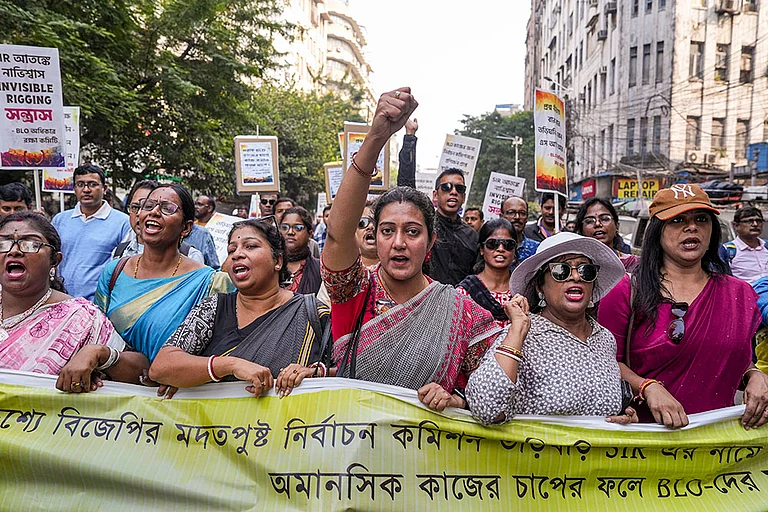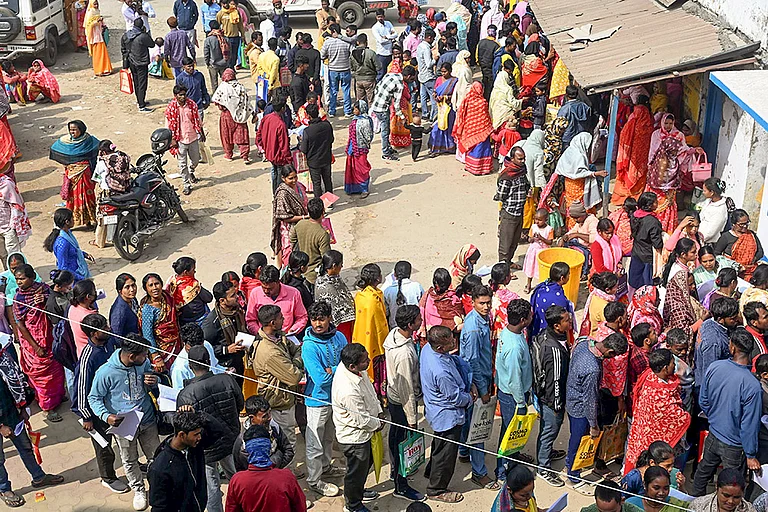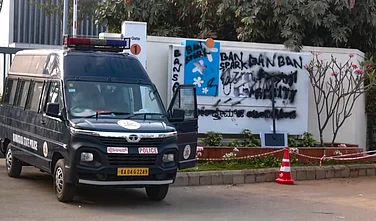
A plea in the Supreme Court has sought a special investigation team led by a former judge to probe alleged voter roll manipulation in Bengaluru Central and other constituencies.
The petition cites Rahul Gandhi’s August 7 press conference, where he alleged “vote theft” through collusion between the BJP and Election Commission.
It also urges the court to halt voter list changes, mandate an independent audit, and set binding guidelines for transparency in electoral rolls.
The Supreme Court has received a plea asking for the creation of a special investigation team led by a former judge to look into claims of electoral roll manipulation in Bengaluru Central and other impacted constituencies. The plea references Rahul Gandhi's press conference on August 7th, during which he provided evidence to support these claims.
Additionally, the plea asked the Supreme Court to order that no more changes or finalisations of the electoral records be made until the court's orders are followed and an independent audit of the rolls is finished.
In his petition, advocate Rohit Pandey cited a Karnataka constituency's voter rolls from the previous year and cited Leader of the Opposition in the Lok Sabha Gandhi's August 7 press conference, in which he made explosive claims of a "huge criminal fraud" in polls through "collusion" between the BJP and the Election Commission.
Gandhi's accusation that "vote chori" (vote theft) is a "atom bomb on our democracy" was soon followed by a request from the chief electoral officers of Karnataka and Maharashtra for the former head of the Congress to provide the names of voters he said were "wrong" on the voter list and a signed declaration allowing poll officials to start "necessary proceedings" in the case.
Chief Election Commissioner Gyanesh Kumar had stated on August 17 that Gandhi's claims of "vote theft" would be deemed illegitimate and unfounded unless he made a declaration under oath within seven days regarding his claims of abnormalities in the voter list.
The apex court's plea has urged the court to provide the Election Commission with legally binding guidelines to guarantee accountability, transparency, and integrity in the creation, upkeep, and publication of electoral rolls. These guidelines should include procedures for identifying and preventing duplicate or fraudulent entries.
It also sought a direction to the EC to publish electoral rolls in accessible, machine-readable and OCR-compliant formats to enable meaningful verification, audit and public scrutiny.
"The petitioner has observed grave irregularities in the electoral rolls of Bengaluru Central Parliamentary Constituency (Mahadevapura Assembly Constituency), which, on the face of it, warrant urgent consideration by this court," the plea said.
It stated that the Supreme Court's action was necessary to protect and maintain the Constitution's sanctity, which the court alone could successfully guarantee.
According to the appeal, over 39 lakh new voters were added to the electoral record in Maharashtra in the four months following the 2024 Lok Sabha elections and before the Assembly elections, compared to only roughly 50 lakh voters during the five years prior.
"Such a sudden and disproportionate increase raises a serious question on the transparency of the Election Commission in the process of addition of names to the voter list," the plea said.
It said the apex court has consistently held that free and fair elections constitute part of the 'basic structure' of the Constitution and cannot be diluted or subverted by any legislative or executive action.


























